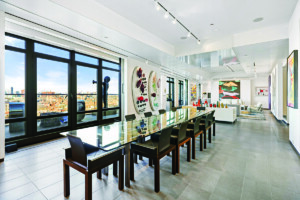Roll With It
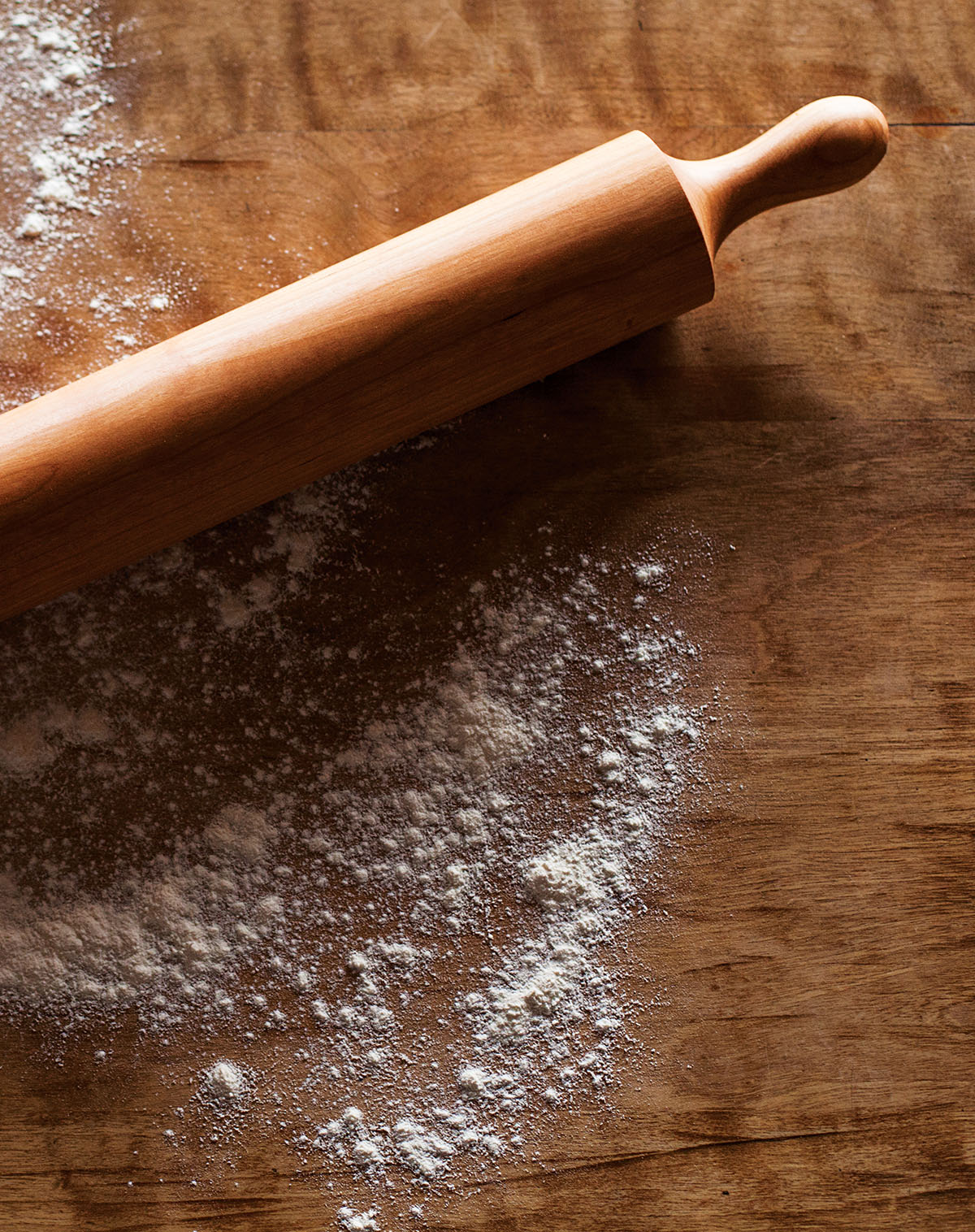
photograph by pat piasecki
Functional utensils aren’t usually elegant, well crafted, and stylish, but Ken Freeman’s sleek, hand-turned rolling pins defy all convention.
The Middlebury native, a custom woodturner by trade, focused much of his career on architectural preservation. But when the economy took a nosedive back in 2008, the construction work he’d previously enjoyed significantly slowed—“especially in Vermont,” he says. It was his wife, Cyndi, who suggested selling custom rolling pins, a specialty piece Ken had made a few times for a cabinetmaker, who’d leave them on the countertops of finished kitchens as a thank-you to the homeowners.
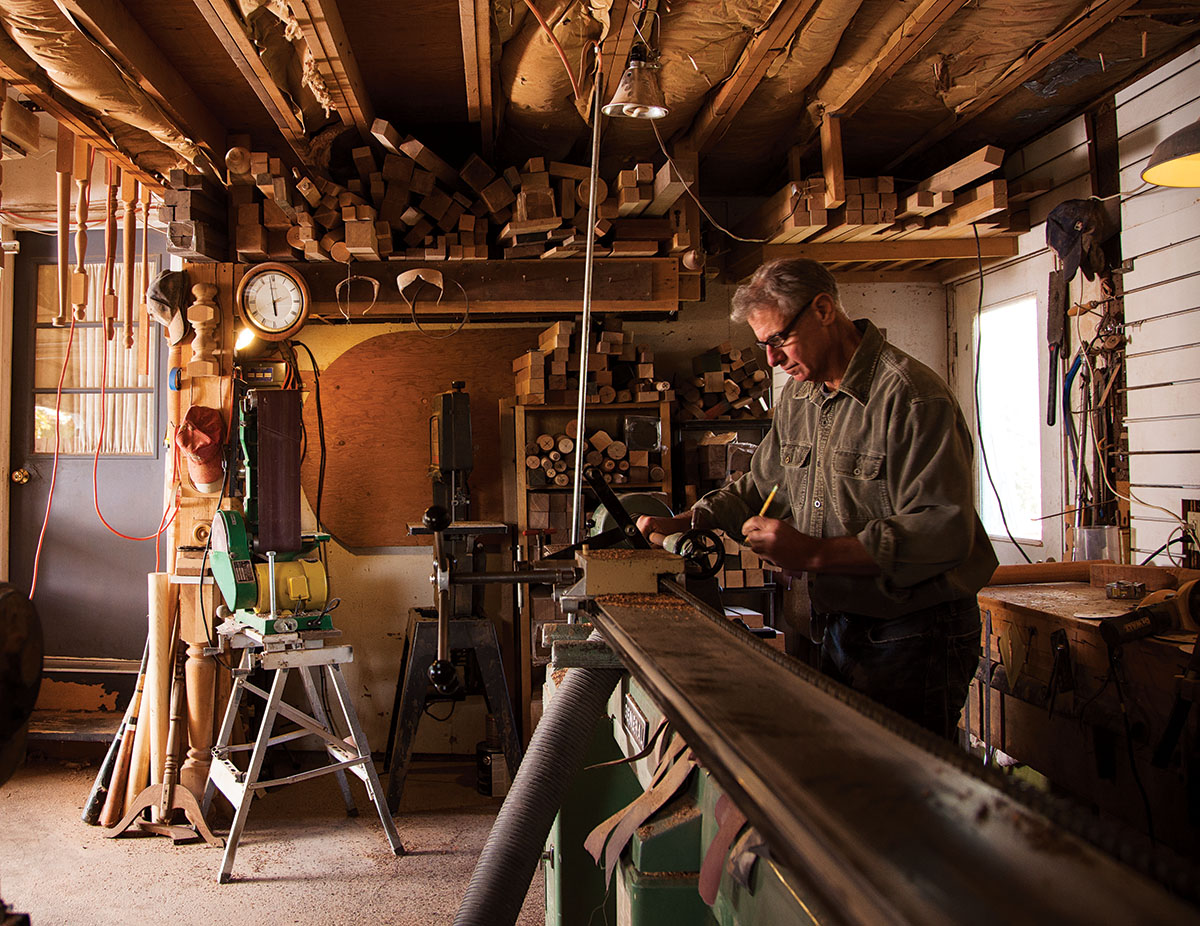
Right, Ken Freeman’s workshop in South Burlington, Vermont, boasts gorgeous views of the Green Mountains out back. photograph by pat piasecki.
Back in those early days, Ken made only one style, the “Shaker” (think: the standard rolling pin your grandmother used), but in the six years since he started the company, he and Cyndi have come up with nine additional designs—from the sleek, tapered-edge “French” to the funkier “Beehive,” which features beaded handles. “Cyndi and I just sat down and etched out ideas,” Ken says. “If you stare at a piece long enough you come up with designs that both look good and feel great on the hand.” Each style is available in a choice of three woods—cherry, maple, or walnut—which Ken sources from a custom millworker in Barre, Vermont, about 45 miles from his home.

From left, maple, walnut, and cherry woods are sourced locally; Ken says he uses only three hand tools to shape his unique designs. photographs by pat piasecki.
Ken begins each pin with a rough-cut block of wood, which he marks up on either end with measurements to ensure consistency before trimming it down to size. He then spins the block on the appropriate lathe, using three different hand tools to carve out the desired shape and design features, such as decorative knobs. “Then you sand, sand, sand till it comes out nice and smooth,” he says. Ken uses 60-grit sandpaper and works his way up to 220 grit, then he wets the pin, lets it dry, and sands it once more. Finally, he burnishes it with a beeswax mineral oil, which accentuates the wood’s natural grain, creating a sleek look and feel.
“What makes our pins different from the run-of-the-mill pin is they are so smooth,” Cyndi says. “They’ll never break, because they’re made from solid wood.”

photograph by pat piasecki
Ken works out of his wood shop, converted from his home’s tiny 400-square-foot garage. Two large lathes occupy the majority of the space, which also holds a few hand tools and saws. Out back he enjoys breathtaking views of the Green Mountains.
Cyndi and Ken have found playful ways to incorporate the joys of cooking and community into their business. This year marks their fourth annual apple-pie contest, an idea born out of the “Pie of the Month” club that they host in their gambrel-style home. During apple season, participants (mostly former customers, though anyone can enter) are encouraged to mail or drop off homemade pies for blind taste tests by club members. (Appearance only matters if there’s a tie, they say.) As many as 50 pies have shown up on their doorstep, and “Between 10 or 12 of us, we taste them all,” Ken says. While locals may have a freshness advantage, geography is hardly a determining factor: Last year’s winning pie came from Texas.

Ken carves each pin on a high-speed electric lathe before sanding and applying a beeswax/mineral-oil finish. photograph by pat piasecki.
“It’s a great lifestyle, let’s put it that way,” Ken says. He and Cyndi have enjoyed so much success with Vermont Rolling Pins, in fact, that Ken’s woodturning business has taken a backseat to the endeavor. They sell as many as 1,600 pins a year (which start at $45) at select retailers, farmers’ markets, and on their website, which has since expanded to include custom engraving ideas, specialty pizza tools, and an entertaining-focused editorial portion that offers recipes and tutorials for hosting gourmet parties.
“We love doing it,” Ken says. “It’s been quite successful because we haven’t really seen any other quality, nicely designed rolling pins out there.”
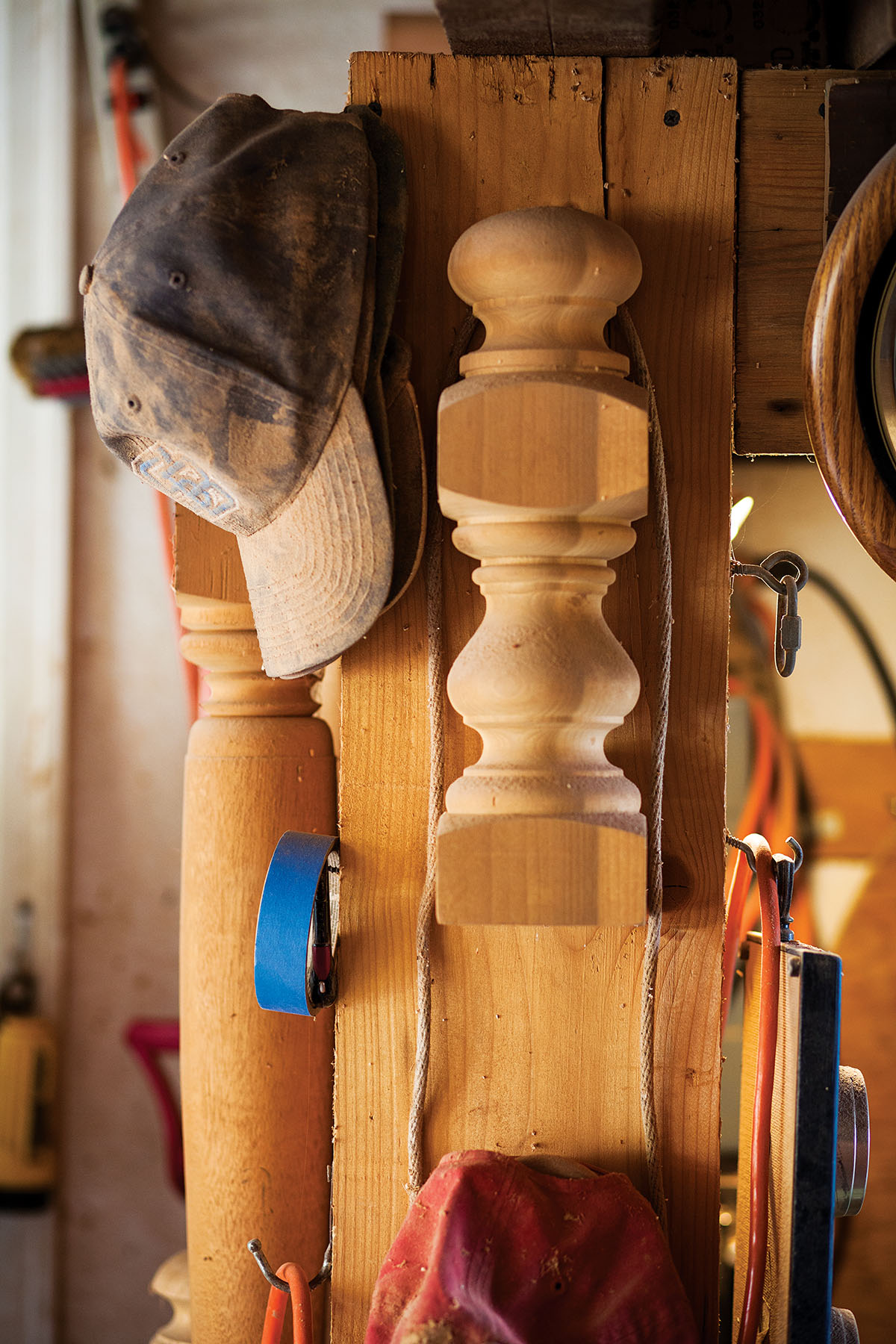
Ken also does custom woodturning out of the same workshop. photographs by pat piasecki.
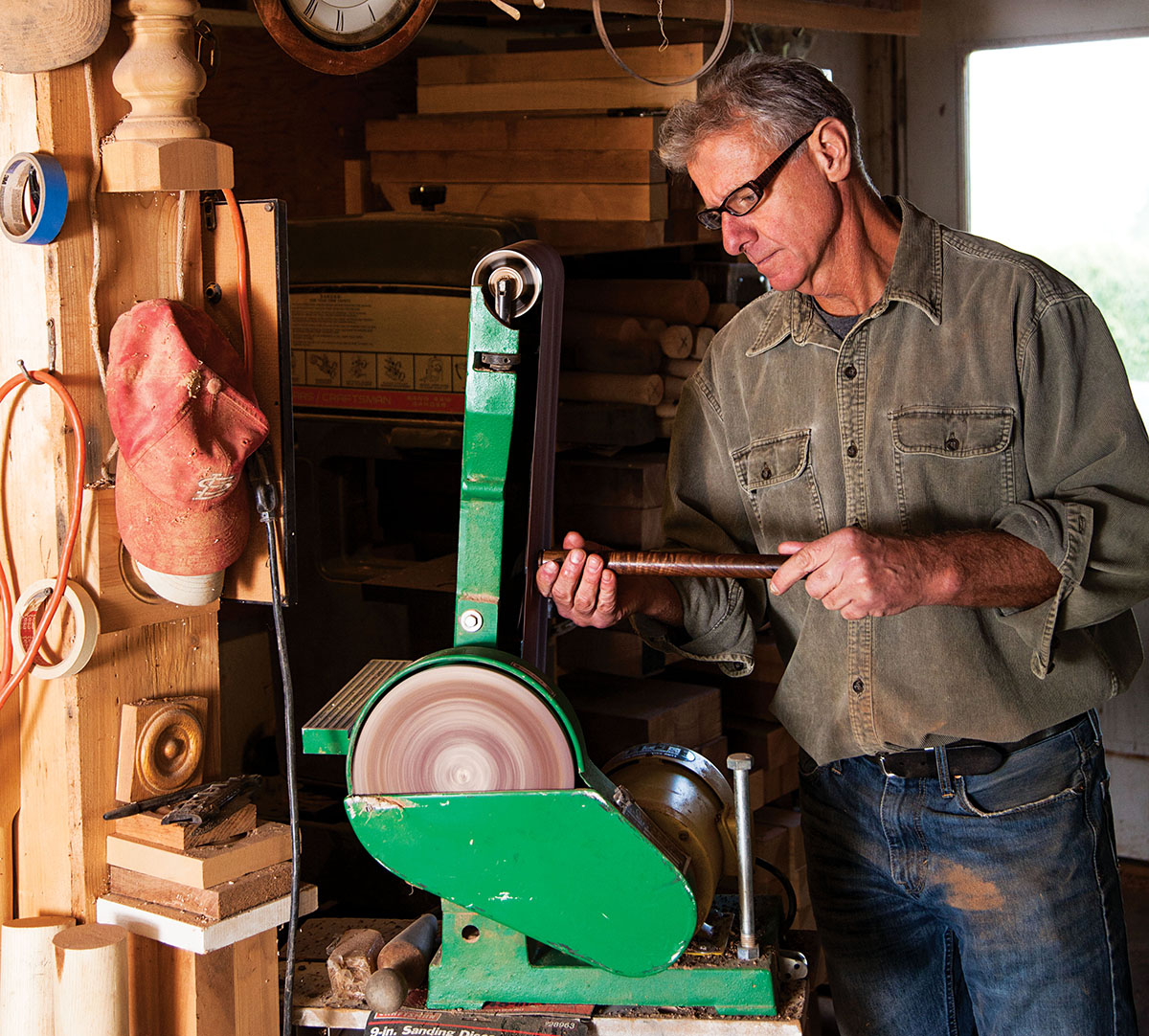
Ken works a piece of cherry on an electric sander. photograph by pat piasecki.
